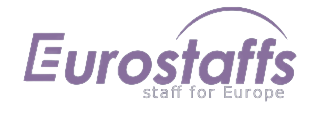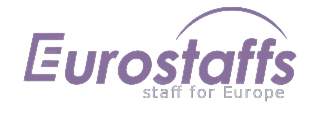How to Find Jobs in Europe with Visa Sponsorship
How to Find Jobs in Europe with Visa Sponsorship in 2025
Whether you're an aspiring tech professional, a skilled healthcare worker, or a creative looking to break into the European market, visa sponsorship can open the doors to promising career opportunities. With countries in Europe facing labor shortages across key industries, employers are increasingly offering visa sponsorships to attract global talent.
This guide provides you with step-by-step instructions, essential resources, and actionable tips to find jobs in Europe that offer visa sponsorship. From understanding visa sponsorship to acing interviews and navigating the visa application process, we’ve got you covered.
What is Visa Sponsorship in Europe?
Visa sponsorship refers to the legal and financial backing provided by an employer to allow a foreign worker to live and work in their country. Essentially, the employer handles the paperwork and associated costs needed to acquire a work visa for the employee.
Benefits of Visa-Sponsored Jobs
- Ease of Relocation: Employers offer significant support, including assisting with visa applications, accommodations, and settling into a new country.
- Expanded Opportunities: Securing sponsorship highlights that your skills and qualifications are highly valued, even at a global level.
- Legal Compliance: Visa sponsorship ensures that you can live and work in your host country legally, allowing you to focus on career growth without legal concerns.
Challenges to Consider
- Competition: Visa-sponsored roles often attract applicants from across the globe, making the selection process competitive.
- Employer Dependency: Your legal ability to work resides with the sponsoring employer, sometimes limiting job flexibility.
Popular Industries Offering Visa Sponsorship
Here are the top industries in Europe with high demand for talent and active visa sponsorship programs:
IT and Software Development
- Roles include Java Developer, software engineer, and data scientist.
- Top companies offering visa sponsorship: LinkedIn, GitHub, and Envato.
Healthcare
- Europe is in critical need of nurses, physicians, and other healthcare workers.
- Example companies: National healthcare systems across countries like Germany, the UK, and the Netherlands frequently offer sponsorship.
Design and Creative Fields
- Positions such as Graphic Designer are gaining relevance as businesses prioritize brand presence.
- Companies hiring designers include cutting-edge startups and larger firms like Avery and Steele Co.
Education and Teaching
- Demand for qualified teachers is particularly high with roles like teaching jobs for English, primary education, and STEM subjects.
- Hiring platforms include localized school boards and university employment sites.
How to Find Jobs in Europe with Visa Sponsorship
1. Explore Online Job Boards and Platforms
Specialized platforms simplify the process of finding visa-sponsored jobs. Begin your search with:
- LinkedIn (filter results for visa sponsorship roles)
- GitHub (ideal for tech professionals)
- Envato (great for creatives and designers)
2. Visit Company Websites
Many multinational companies advertise job openings on their career pages. Companies hiring for sponsorship jobs include:
- Teletalk, Avery and Steele Co, Brac, LafargeHolcim Bangladesh PLC
- Explore Eurostaffs’ Visa Sponsored Jobs here.
3. Work with Recruitment Agencies
Recruitment agencies specializing in international placements can connect you with employers actively seeking candidates for sponsored roles. Popular options include Robert Walters Middle East and GulfTalent.
4. Leverage Networking and Referrals
80% of job opportunities are filled via networking. Attend industry meetups, join relevant LinkedIn groups, and ask your connections for introductions where possible.
Crafting a Strong Application
The key to standing out in a competitive job market is to craft an application that reflects your value proposition.
Resume Optimization
- Tailor your resume to the specific job. Highlight achievements and skills relevant to the role.
- Use concise, result-driven bullet points, e.g., “Optimized system architecture, increasing efficiency by 30%."
Cover Letter Tips
Personalize your cover letter for the company. Address the specific challenges you can solve and how your international background adds value.
Highlighting Relevant Skills
Soft skills like adaptability and cultural awareness are crucial for visa-sponsored roles as they demonstrate your preparedness to work in a diverse environment.
Preparing for the Interview
The interview stage is a critical juncture in securing a visa-sponsored role. Stand out by excelling in the following areas:
Research the Company
Learn about the company’s products, values, and culture. Tailor your responses to demonstrate how your goals align with theirs.
Practice Common Interview Questions
Be prepared to answer role-specific questions (e.g., technical queries for developers or lesson plans for teachers) as well as broader questions like, “How do you handle cross-cultural work environments?”
Demonstrate Cultural Fit
Show your willingness to assimilate into the company and local culture. Examples from past experiences working in diverse teams can be a great asset here.
Visa Application Process
Once you’ve landed the job, the visa application process kicks off with the employer’s assistance. Ensure a smooth application process by following these steps:
Gather Required Documents
Typically, you’ll need a valid passport, job offer letter, proof of qualifications, and in some cases, proof of language proficiency (e.g., TOEFL or IELTS).
Understand Visa Types
Common types of work visas in Europe include the EU Blue Card, Highly Skilled Migrant Visa (Netherlands), and Tier 2 Visa (UK). Research the specific visa type relevant to your destination country.
Avoid Common Mistakes
- Submit accurate and complete documents.
- Double-check visa application fees and payment processes.
- Never submit false or inconsistent information during the process.
Success Stories
To inspire your search, here are success stories of individuals who landed visa-sponsored jobs in Europe:
- Sarah, a software developer from India, secured a job in Germany through LinkedIn. Her networking strategy and meticulously tailored applications won her the offer.
- James, an English teacher from Canada, used Eurostaffs’ online portal to connect with schools in Madrid, aligning his skill set with employer priorities.
Their common takeaway? Patience and persistence are key in the search for sponsorship opportunities.
Explore Opportunities with Eurostaffs
Eurostaffs regularly updates its listings with visa-sponsored roles across Europe. Whether you’re looking for a job as an IT specialist, healthcare worker, or educator, your perfect opportunity might already be waiting. Check out the latest job openings and apply here!
Take the First Step Toward Your Dream Job
Securing a job in Europe with visa sponsorship is a challenging yet rewarding endeavor. From leveraging online platforms like LinkedIn to perfecting your interview skills, every effort brings you closer to achieving your goals.
Don’t know where to start? Visit Eurostaffs’ Visa Sponsored Jobs page or reach out for guidance to kickstart your European career today!

 French
French
 Arabic
Arabic
 English
English



